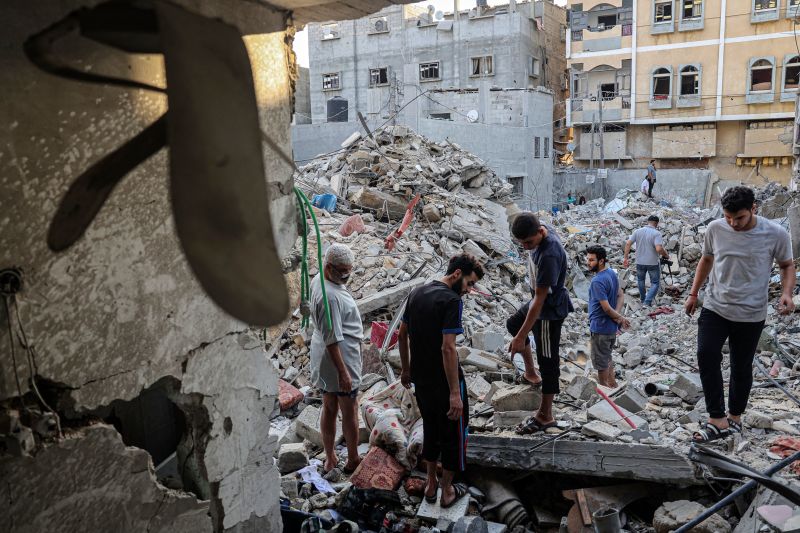Key Highlights
- Israeli air force carried out airstrikes in Rafah, southern Gaza, after Hamas militants emerged from tunnels and engaged with Israeli soldiers.
- The exchange of fire marked the most serious threat to the week-long ceasefire deal between Israel and Hamas.
- Tensions remain high over the pace of releasing hostage remains, with both sides accusing each other of violations.
- Israel’s far-right government called for a severe response against what they termed as Hamas intransigence.
The Gaza Ceasefire on Verge of Collapse
Gaza, the small strip of land on the Mediterranean coast, has once again found itself at the center of international attention. Reports from Sunday indicate that Israeli air force carried out airstrikes in Rafah, southern Gaza, after Hamas militants emerged from tunnels and shot at Israeli soldiers early in the morning. This incident marks the most serious challenge to the week-long ceasefire agreement between Israel and Hamas since it was put into place 10 days ago.
Intensifying Tensions
The clash in Rafah is part of a series of violations that have emerged as the fragile truce hangs by a thread. According to reports, neither Hamas nor the Israeli military has officially confirmed the events, but the exchange of fire and subsequent airstrikes signify a significant escalation. Prior to this incident, Israel accused Hamas of violating the ceasefire 48 times since its implementation, resulting in the deaths of 38 Palestinians. Meanwhile, Hamas accused Israel of failing to return all remains of deceased hostages.
Deadlines and Deadlocks
The fragile nature of the ceasefire deal is further highlighted by ongoing disputes over the release of hostage remains. On Saturday night, Hamas returned two caskets to Israel, identified as Ronen Engel, a 54-year-old photographer killed in southern Israel on October 7th, and Sonthaya Oakkharasr, a Thai national who was killed in Be’eri kibbutz. The office of Israeli Prime Minister Benjamin Netanyahu confirmed the return and reiterated its commitment to securing all remaining hostages’ remains.
However, as of Saturday evening, Hamas had only returned 12 out of 28 deceased captives, citing the need for specialist recovery equipment to retrieve the rest from the ruins.
The Rafah border crossing, which was the only one not controlled by Israel before the war and has been closed since May 2024, remains a contentious issue. Israel stated that the crossing would stay closed “until further notice,” contingent on Hamas fulfilling its ceasefire obligations.
International Pressure
The United States, which brokered the ceasefire agreement, issued a statement on Saturday night expressing concern over potential violations by Hamas, particularly in relation to its crackdown on clans opposed to its rule. The U.S. stated that “credible reports” suggested Hamas might violate the ceasefire by carrying out attacks against Palestinian civilians.
The continued closure of the Rafah crossing has exacerbated humanitarian crises in Gaza, where 2 million people are struggling with critical aid shortages one week into the ceasefire. The reopening of this crossing is crucial for providing medical treatment, travel, and family reunions to Palestinians. Israel’s decision to keep it closed has been seen as a strategic move to pressure Hamas on the hostage remains issue.
Implications and Future Outlook
The latest round of fighting in Rafah and the ongoing disputes over the return of hostages’ remains underscore the fragility of any ceasefire agreement between Israel and Hamas. The international community, including the United States, continues to monitor the situation closely, with calls for both parties to adhere strictly to their commitments.
As negotiations continue in Egypt to finalize details of the US-drafted plan, experts warn that the failure to resolve these key issues could lead to a complete breakdown of the ceasefire. This would likely result in renewed hostilities and further suffering among the civilian population of Gaza. The international community remains deeply concerned about the potential for another prolonged conflict in the region.

